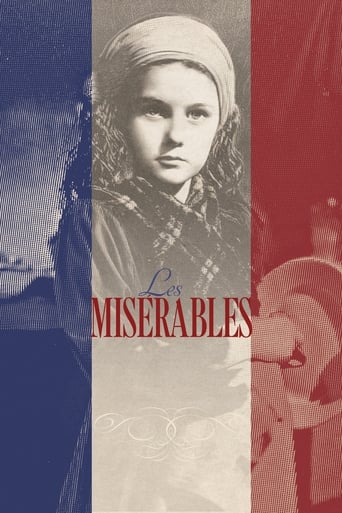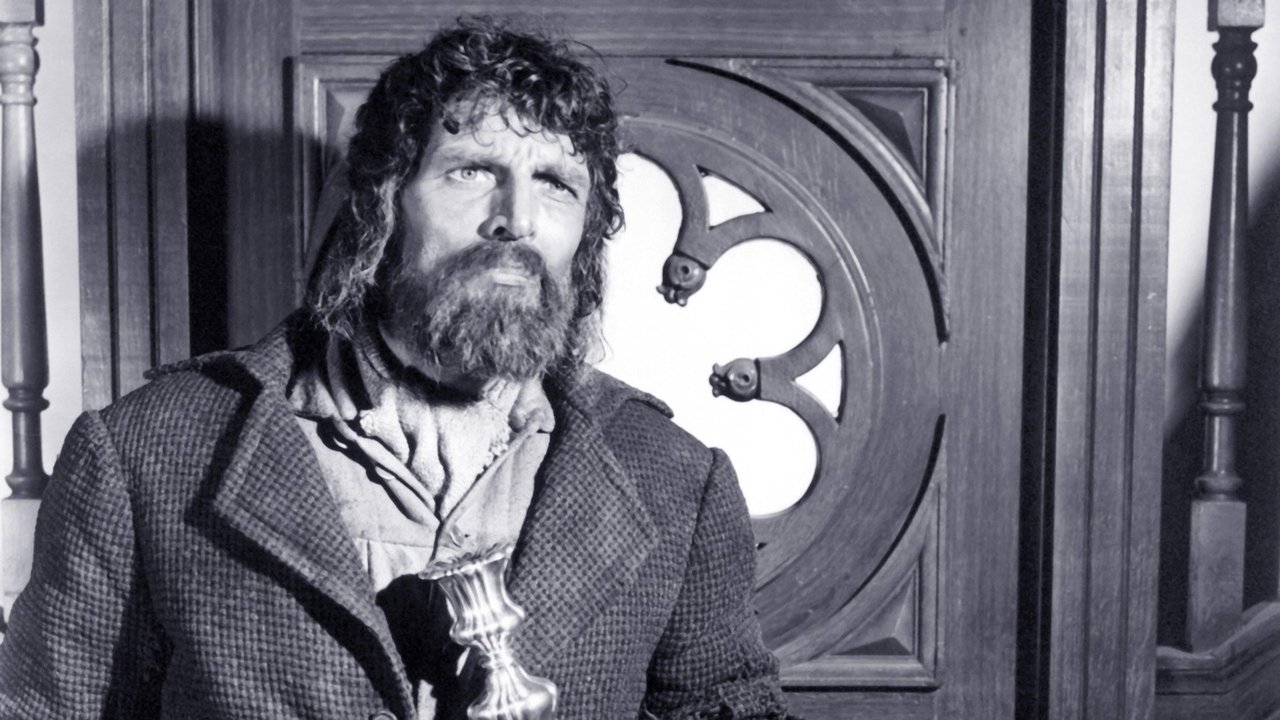marlene_rantz
This version of Victor Hugo's classic novel was not as good as the 1935 version. Obviously, the two leading actors can not compare to Fredric March and Charles Laughton, but let me tell you, Michael Rennie and Robert Newton both gave excellent performances! Joseph Wiseman was excellent in a small role, as were James Robertson Justice, Edmund Gwenn, Cameron Mitchell, Debra Paget, and Sylvia Sidney! Once again, this version was not as good as the 1935 version, but all the actors did their very best, and I believe the result was a movie worth watching, and I highly recommend it! The excellent acting definitely lifted it up to almost the 1935 version!
Robert J. Maxwell
I guess this is about the most filmed of Hugo's novels and it's understandable. It probes the distinction between "the law" and "justice," which aren't always concordant.The story must be fairly familiar. ("The Fugitive" was a shameless rip off.) The tattered, exhausted, starving, bitter, soulless Jean Valjean (Rennie), just out of prison for having stolen a loaf of bread, is taken in by a kindly Bishop, who cares for him and gives him a bed. In return, Valjean gets up early, steals all the silverware and makes off with it. He's caught by the police but the Bishop lies and claims the silver was a gift. It's one of the things I like about the story -- and about many of Dickens' tales too. The poor lead wretched lives but they're hardly all heroes. These stories probe the distinction between "adult stories" and "propaganda." Sent away with the silver and the Bishop's blessings, Valjean gets himself cleaned up and becomes part owner, then full owner, of a pottery shop that prospers under his management. He becomes so well known that he's elected mayor. But in doing so he breaks his parole and, if he's caught, will spend the rest of his life in prison. The likelihood of that's happening increases when the mentally rigid Inspector Javert (Newton) is assigned as head of the district's police force. The son of a convict himself, Newton was one of Rennie's guards in the prison galleys and considers him suspect. His suspicions are confirmed when Rennie sacrifices himself in order to save a confused old man who was mistaken for him.Thereafter, the story gets more complicated -- it's based on an almost endless novel, more than 1400 pages divided into more than 300 chapters.Rennie's adopted daughter, Cosette (Paget), takes up with a young revolutionary (Mitchell), and conflicts ensure. This plot thread probes the difference between "romantic love" and "familial love" because, for all we know, the young Debra Paget being the dish she is, she may be Lolita to Rennie's Humbert Humbert. That's what Mitchell thinks, anyway. For some reason I never cared much for Mitchell as an actor, or for his sympathetic but hot-headed character, Marius. They were rebelling against the captains of industry and the robber barons who were making fortunes at the expense of everyone else, just as in much of the rest of the industrialized world, okay, but violence tends to beget violence. Besides, I can't remember a single powerful performance from Cameron Mitchell. He may have been a nice guy in real life, loved his dog, collected pressed roses. Let's see. I think I've covered the Cameron Mitchell business. Ah, but the strawberries. The strawberries! That's where I had them! You should see me "do" Humphrey Bogart. My son tells me it's terrific, although I have to beat him into saying it.In the end, it's hard to compare the various filmed versions of "Les Miserables." For one thing, I haven't seen that many of them. For another, the main theme of pursuit by a single-minded neurotic aside, there are so many plot threads to be followed with varying degrees of detail, that each version is almost like a different movie. The most "realistic" version that I've seen is unquestionably the rendition starring Liam Neeson as Jean Valjean and Uma Thurman as Cosette's prostitute mother who dies of tuberculosis. When Thurman coughs, she spits up blood. And Geoffrey Rush as Javert was superb. The version with Frederick March, like the one under discussion, is given the broad Hollywood treatment and is nice and taut, but tastes differ.
disdressed12
i liked this version of Victor Hugo's classic novel,Starring Michael Rennie as Jean Valjean and Robert Newton as Javert.however i prefer the 1935 version starring Frederic March as Valjean and Charles Laughton as Javert.this may just be personal preference but i think March and Laughton were more suited for their roles than Rennie and Newton were.i found this version a bit slower,and not quite as compelling,though it still has its moments.the theme of redemption is of course front and centre,but it is not as well developed or explored here,and has less of an impact.the ending though similar to the 1935 version is not as powerful.still,a very good film.for me,Les miserables (1952)is an 8/10
didi-5
With Michael Rennie as Valjean and Robert Newton - in a subdued and tense performance - as Javert, this version of Victor Hugo's great novel is involving, intelligent, touching, and passionate.In comparison to the 1935 version with March and Laughton, this film stands up well, and looks good, with a literate script. Some characters from the novel are omitted for time constraints, but their absence is not missed.A good and sturdy version then, not without flaws but carried forward by strong performances, particularly that of Newton, who fits the part of Javert extremely well.



 AD
AD



